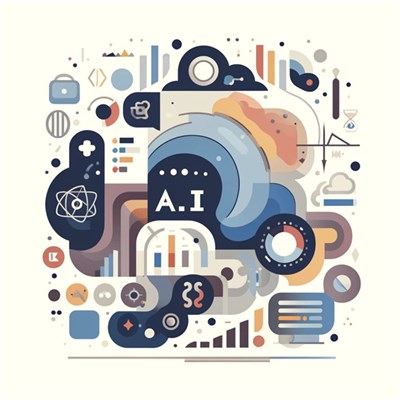
Data science is a rapidly growing field that combines statistics, programming, and domain expertise to extract meaningful insights from data. As organizations increasingly rely on data to make informed decisions, the demand for skilled data professionals continues to rise. Microsoft, a leader in technology and data solutions, offers a comprehensive Data Science course designed to equip individuals with the essential skills needed to thrive in this dynamic field. In this blog, we will provide an in-depth overview of Microsoft’s Data Science course, detailing what you can expect from the curriculum, learning outcomes, and how it can benefit your career.
What is Microsoft’s Data Science Course?
Microsoft's Data Science course is part of its broader initiative to provide high-quality education and training in technology and data analytics. Offered through platforms like Microsoft Learn, the course is designed for aspiring data scientists, analysts, and professionals looking to enhance their data skills. The course is tailored to meet the needs of both beginners and experienced individuals, providing a structured learning path that encompasses a wide range of data science concepts and techniques.
Course Structure and Content
Microsoft’s Data Science course is typically organized into several modules that cover a variety of topics essential for data science. Here’s a breakdown of what you can expect from the course:
1. Introduction to Data Science
The course begins with an introduction to data science, covering its significance in today's world, common terminologies, and the various roles within the field. This foundational module sets the stage for understanding the key concepts and the importance of data-driven decision-making.
2. Data Exploration and Preparation
Data exploration and preparation are crucial steps in the data science process. In this module, you will learn how to clean and preprocess data, handle missing values, and perform exploratory data analysis (EDA). You will also gain hands-on experience with data manipulation libraries such as Pandas in Python, which are vital for effective data handling.
3. Statistical Foundations for Data Science
Understanding statistics is essential for any data scientist. This module covers fundamental statistical concepts, including descriptive statistics, probability distributions, hypothesis testing, and inferential statistics. The knowledge gained here will enable you to make sound decisions based on data analysis.
4. Data Visualization
Data visualization is a powerful tool for conveying insights and findings. In this section, you will learn how to create effective visualizations using tools like Matplotlib and Seaborn in Python. The course will emphasize the importance of storytelling with data and how to present your findings clearly to stakeholders.
5. Machine Learning Basics
Machine learning is at the core of data science, and this module introduces the fundamental concepts of supervised and unsupervised learning. You will explore various algorithms, including linear regression, decision trees, and clustering techniques. Hands-on projects will provide practical experience in applying these algorithms to real-world datasets.
6. Advanced Machine Learning Techniques
As you progress, the course delves into advanced machine learning topics, such as ensemble methods, natural language processing (NLP), and deep learning. This section will equip you with the skills to tackle complex problems and enhance the performance of your models.
7. Model Evaluation and Selection
Understanding how to evaluate and select models is crucial in the data science workflow. This module covers performance metrics, cross-validation techniques, and model tuning. You will learn how to assess the effectiveness of your models and make informed decisions based on evaluation results.
8. Deployment and Productionization of Models
Deploying machine learning models into production is a critical skill for data scientists. This module covers the principles of deploying models using cloud platforms such as Azure. You will learn about versioning, monitoring, and maintaining models in a production environment.
9. Capstone Project
To reinforce your learning, the course culminates in a capstone project where you will apply the skills and knowledge gained throughout the course. This project will involve solving a real-world problem, from data collection and preprocessing to model development and deployment. Completing a capstone project allows you to showcase your abilities to potential employers.
Learning Outcomes
By the end of Microsoft’s Data Science course, you can expect to have developed the following skills:
- Data Manipulation: Proficiency in using Python libraries such as Pandas and NumPy for data manipulation and cleaning.
- Statistical Analysis: Strong understanding of statistical concepts and the ability to apply them to real-world scenarios.
- Data Visualization: Ability to create compelling visualizations using tools like Matplotlib and Seaborn to communicate insights effectively.
- Machine Learning: Fundamental knowledge of machine learning algorithms, along with practical experience in building and evaluating models.
- Deployment Skills: Understanding of how to deploy machine learning models and monitor their performance in a production environment.
- Problem-Solving: Hands-on experience in tackling real-world data science problems through projects and case studies.
Benefits of Enrolling in Microsoft’s Data Science Course
1. Industry-Relevant Skills
Microsoft’s Data Science course is designed with input from industry professionals, ensuring that the skills you acquire are relevant and in demand in the job market. By completing the course, you will be well-prepared to tackle real-world challenges.
2. Flexibility and Accessibility
The course is available online, allowing you to learn at your own pace and from anywhere. Whether you are a full-time professional or a student, the flexible schedule makes it easier to balance your education with other commitments.
3. Hands-On Experience
The course emphasizes practical experience through hands-on projects and exercises. This experiential learning approach helps reinforce your understanding of theoretical concepts and prepares you for real-world applications.
4. Networking Opportunities
By enrolling in the course, you join a community of learners and professionals in the field of data science. This network can provide valuable connections, mentorship, and opportunities for collaboration.
5. Certification
Upon successful completion of the course, you will receive a certification from Microsoft, which is recognized by employers worldwide. This certification serves as a testament to your skills and can enhance your resume, making you more competitive in the job market.
Conclusion
Microsoft’s Data Science course offers a comprehensive and structured approach to learning the essential skills needed for a successful career in data science. With a blend of theoretical knowledge and practical experience, participants can expect to gain industry-relevant skills that will prepare them for the challenges of the data-driven world. Whether you are looking to transition into data science or enhance your existing skill set, this course provides the necessary foundation to help you achieve your career goals. Enroll in Microsoft’s Data Science course today and take the first step toward becoming a proficient data professional.
Koenig Solutions is a leading IT training company that offers a wide array of certification courses in top technology courses. With a team of experienced trainers, comprehensive learning materials, and a flexible training schedule, Koenig Solutions ensures that you gain the maximum value from your training.
Enroll in the Microsoft Azure Data Science Certification course with Koenig Solutions and kickstart your journey in the exciting world of data science.







COMMENT